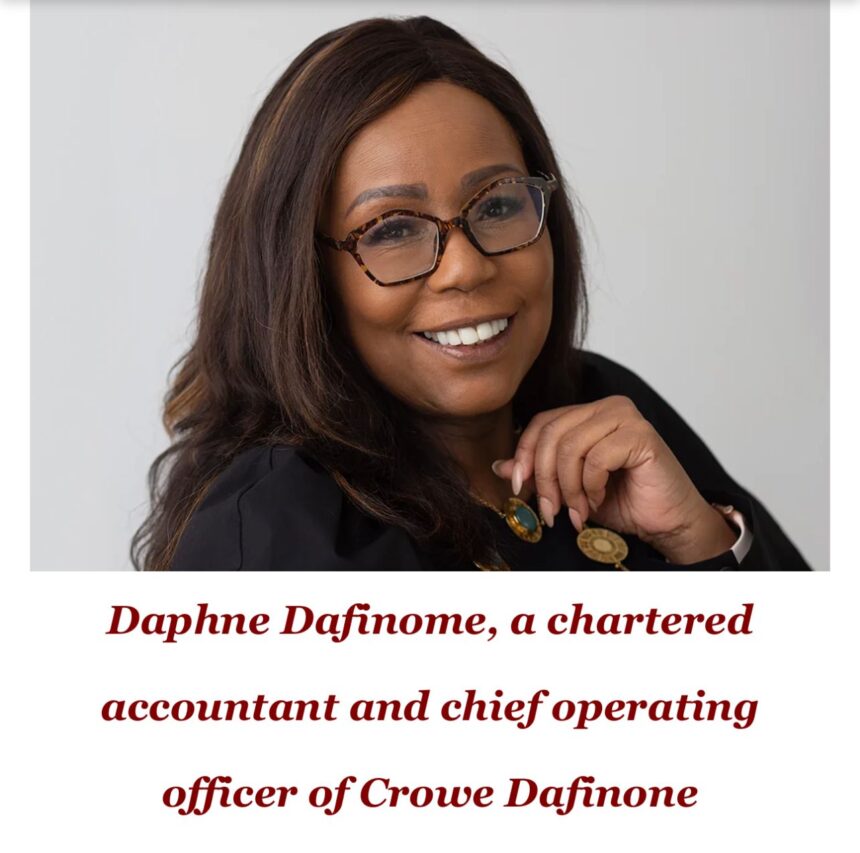● From Fraud Allegations to the Boardroom: The Disquieting Rise of Daphne Dafinone
The Central Bank of Nigeria (CBN), once revered as the sanctum of fiscal discipline, now stands on precarious ground, its corridors darkened by the shadow of impropriety. At the heart of this brewing tempest is Ms. Daphne Dafinone, a consultant personally recruited by the apex bank’s governor, Yemi Cardoso. Her appointment, however, is stained by scandal—an impending arraignment before Justice Ibrahim Kala of the Federal High Court in Lagos over allegations of a N100 million fraud. Alongside her company, CEDDI Corporation Limited, she stands accused of double-selling a prime property, a grievous financial transgression that raises a chilling question: How did such a figure find herself woven into the very fabric of Nigeria’s highest financial institution?
There is no gainsaying the CBN is entrusted with safeguarding Nigeria’s monetary policies, ensuring transparency, and upholding financial sanctity. Yet, in a turn of events more befitting a tragicomedy, Ms. Dafinone—whose business dealings now stand in the dock—was appointed as a consultant, entrusted with delicate financial reforms at the apex bank. It is an irony so stark it borders on the surreal: A woman accused of fraud has been granted free rein to steer policies within the very institution tasked with detecting and deterring fraud.
Premium Times, in an explosive investigative report, detailed how Ms. Dafinone’s alleged fraud came to light. In 2019, Lukman Adeleke, a property developer, reportedly paid N100 million for a commercial property at 93 Broad Street, Lagos. Unbeknownst to him, the same property had been allegedly sold to another buyer. It was a classic case of financial betrayal—an act of deception that sent the developer into a protracted legal battle.
As the judicial gavel prepares to descend on March 4, the question remains: Why did Yemi Cardoso, the CBN Governor, see it fit to enlist Ms. Dafinone’s services? Why was she granted unfettered access to the apex bank’s operations despite an unresolved financial scandal looming over her name?
More than a mere figurehead, Ms. Dafinone wields a formidable influence within the CBN, surpassing even that of seasoned directors. She is at the helm of restructuring policies and economic recalibrations, including a controversial early exit program that sidesteps the bank’s human resources department. Reports from within the CBN whisper of a clandestine operation, where decisions of seismic impact are made without due diligence, where consultants operate with unchecked authority.
Even more galling is the revelation that Ms. Dafinone earns a staggering N35 million monthly—a sum so grotesquely bloated it dwarfs the combined salaries of ten senior directors. What precise expertise justifies such an astronomical paycheck? And why is a banking regulator doling out public funds to a consultant facing imminent trial for fraud?
The appointment of a tainted figure like Ms. Dafinone signals a disturbing trend within Nigeria’s financial institutions—one where due diligence is sacrificed on the altar of expediency, where personal affiliations and clandestine interests override meritocracy and integrity. The CBN’s reputation is not merely at stake; it is being actively eroded, its credibility leaking like a punctured vessel adrift in stormy seas.
A financial institution’s legitimacy is built upon trust—trust that it is governed by individuals of unassailable character, that its policies are shaped by hands unsoiled by corruption. But what happens when this trust is compromised? When figures mired in controversy ascend to the echelons of power, the entire financial system teeters on the precipice of collapse.
The ramifications are dire. Investors, both local and foreign, will begin to question the integrity of Nigeria’s financial system. A central bank that enlists consultants with pending fraud charges is an institution that cannot, in good faith, assure the safety of national assets. The regulatory framework itself is weakened when individuals under legal scrutiny are empowered to dictate financial policy.
Governor Cardoso’s decision to bring Ms. Dafinone into the fold now appears, at best, a lapse in judgment and, at worst, a gross dereliction of duty. The echoes of history remind us that institutions do not crumble overnight; they decay from within, their foundations eroded by complicit leadership, by the unchecked ambitions of those who should serve but instead siphon.
Premium Times’ investigation paints an unflattering picture of the recruitment process under Governor Cardoso—a pattern of arbitrary hiring that elevates consultants over seasoned directors, that allocates obscene remunerations without justification. In effect, Cardoso has created a parallel power structure within the CBN, one where consultants with murky pasts dictate policy from behind a gilded curtain.
His silence on this matter is deafening. Will the governor address the glaring impropriety of retaining Ms. Dafinone as a consultant while she battles fraud charges in court? Will he acknowledge the institutional rot festering under his leadership? Or will he choose the well-worn path of evasion, hoping that the storm will pass?
For the CBN to reclaim its integrity, a decisive purge is required—one that prioritizes transparency over political maneuvering, accountability over clandestine appointments. The Nigerian public deserves better than a regulatory body compromised from within, an institution whose financial stewards are entangled in allegations of fraud.
Governor Cardoso must provide answers. The Ministry of Finance must demand explanations. The Nigerian people must insist on probity. The fate of the CBN, and by extension the financial stability of the nation, hangs in the balance.
The world watches as March 4 approaches. Will justice be served? Will the CBN distance itself from this tainted consultant? Or will this scandal become yet another footnote in Nigeria’s long history of financial mismanagement? The answer, for now, remains shrouded in uncertainty, but one truth is inescapable: The integrity of Nigeria’s apex bank is under siege, and the time for reckoning is now.




